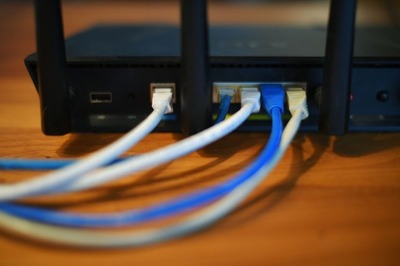
views
Chennai: Hours after the Nuclear Power Corporation of India Limited (NPCIL) admitted to a malware attack on its computer system, Dravida Munnetra Kazhagam (DMK) chief MK Stalin on Wednesday called for an investigation into the lapse and an explanation of cyber security around nuclear facilities.
The development took place a day after officials from the Kudankulam Nuclear Power Plant (KKNPP) denied reports of a cyber attack on their control system. However, they failed to clarify about the status of their external computers -- particularly those connected to the public network.
“The cyber attack on NPCIL facilities is shocking and reveals the lack of adequate safety measures. The Union Government must conduct a thorough enquiry into the lapses,” Stalin said in a tweet. “The National Cyber Security Coordinator owes an explanation on the preparedness of such facilities.”
The cyber attack on NPCIL facilities is shocking and reveals the lack of adequate safety measuresThe Union Government must conduct a thorough enquiry into the lapsesThe National Cyber Security Coordinator owes an explanation on the preparedness of such facilities #Kudankulam https://t.co/uZEd91io0C— M.K.Stalin (@mkstalin) October 30, 2019
The admission about the cyber attack was issued earlier on Wednesday NPCIL Associate Director AK Nema who said, “Identification of malware in NPCIL system is correct. The matter was conveyed by CERT-In when it was noticed by them on September 4, 2019. The matter was immediately investigated by DAE specialists.”
Nema said the investigation revealed that the infected PC belonged to a user who was connected in the internet connected network used for administrative purposes. “This is isolated from the critical internal network. The networks are being continuously monitored,’ the NPCIL said in a press statement, adding that the plant systems are not affected.
In a press statement dated Oct 29, KKNPP said: “Some false information is being propagated on the social media platform, electronic and print media with reference to the cyber attack on Kudankulam Nuclear Power Plant. This is to clarify Kudankulam Nuclear Power Project (KKNPP) and other Indian Nuclear Power Plants Control Systems are stand alone and not connected to outside cyber network and Internet. Any Cyber attack on the Nuclear Power Plant Control System is not possible. Presently, KKNPP Unit-1 &2 are operating at 1000 MWe and 600 MWe respectively without any operational or safety concerns.”
It all started when cyber security expert Pukhraj Singh, who has played a critical role in setting up India's cyber defence systems, took to social media to claim that Kudankulam Nuclear Power Plant’s domain controller-level access could have been compromised.

















Comments
0 comment